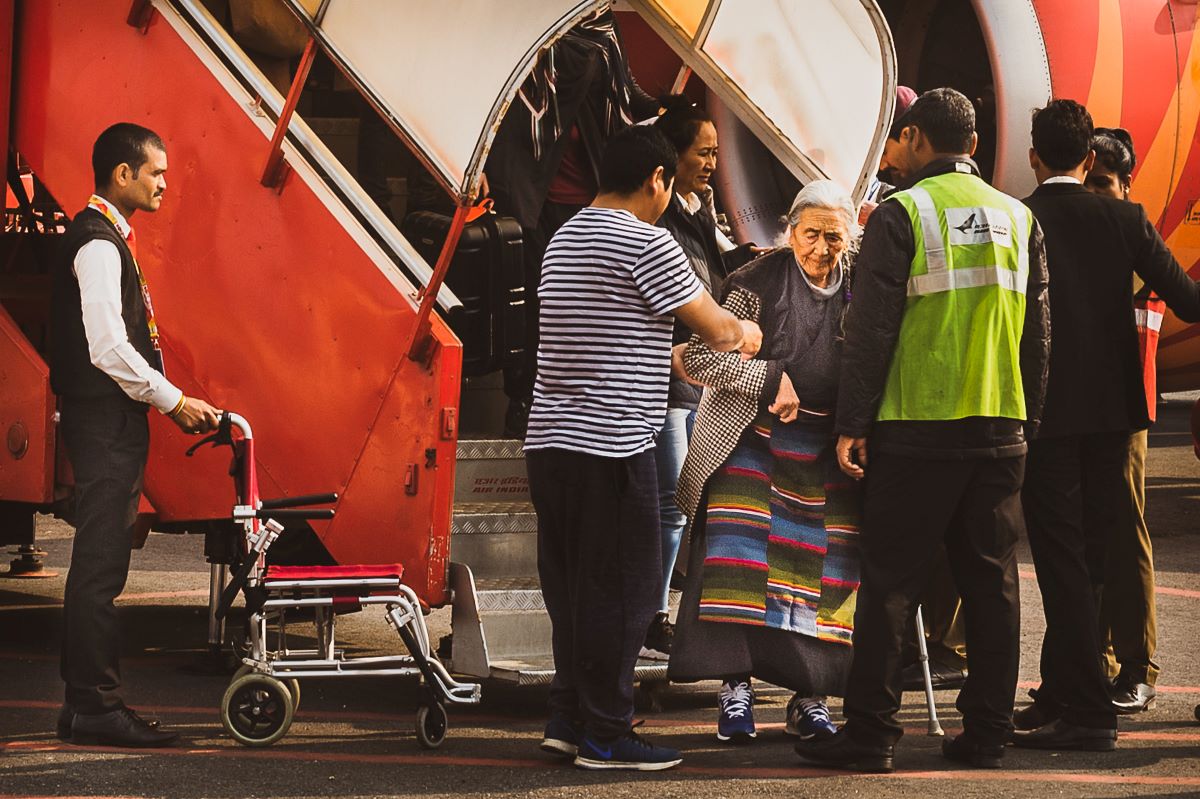Skift Take
Hear from disability travel advocates on why the industry shouldn’t ignore customers with disabilities: But there’s still a long way to go before the travel industry is truly disability inclusive.
Amrita Ghosh
For Neha Arora, whose father is visually impaired and mother is in a wheelchair, family trips and holidays were non-existent during her childhood.
“Growing up, I thought money was a barrier, so when I started earning money, I planned and prepared family trips, but I realised the reason we didn’t travel was because of inaccessibility, insensitivity and prejudice in our society,” said the founder of Planet Able, an inclusive travel brand that promotes travel for people with disabilities and seniors.
In conversation with Skift’s Asia Editor Peden Doma Bhutia on the latest episode of the Skift India Travel Podcast, Arora shares how a series of not-so-great travel experiences led him to found Planet Abled.
The podcast explained that the starting point for creating accommodations and accessibility needs for travelers with disabilities is to recognize that disability comes in many forms and is not limited to simply using a wheelchair.
“When I started Planet Able, I had to work hard to educate and get industry players to understand the needs of disabled travelers. I wouldn’t have had to do that if inclusive tourism was part of the hospitality and tourism establishment,” she said.
It all starts with the right training
Arora said language was a starting point, warning against using euphemisms such as “specially abled” or “strong-willed” to describe people with disabilities.
Talking about the lack of disability-friendly infrastructure in the country, Arora said, “Ramps and toilets are there only as tick marks. We don’t even have accessible rail or intercity road transport. Airplanes are the only mode of travel, but that too is not without unpleasant experiences.”
Training is also a key aspect and understanding how this training is implemented at the different touchpoints of the customer experience is key. If a person with hearing impairment checks into the hotel, how will they communicate with you? How will room service be managed? How will a person with visual impairment navigate the hotel independently? How will they be supported at the breakfast buffet?
Eyeing the Billion Dollar Opportunity
Arora said given India’s emergence as a global technology and services hub, the country could surpass the world in terms of accessible tourist destinations.
“The world comes to us for technology, but when it comes to assistive technology for people with disabilities and technological interventions in hospitality and tourism, we are only at the beginning,” she said.
As India looks to boost tourism numbers and struggles to hit the 10 million target, now is the perfect time for the country to tap into this market.
“We have already shared our tourism guidelines with the Ministry of Tourism free of charge, but they have hardly been implemented,” she said, stressing that now is the time to consider creating a standardized framework that people can adopt.
“We have been working with the tourism department and with some hotel chains to run pilots to roll it out,” Arora said, adding that she believes early adopters will benefit.
“The human experience is one of changing needs and capabilities throughout the lifespan, and the need for good accessibility can affect us all at different stages in life, from a parent with a baby in a stroller to an older person using a wheelchair,” she concluded.
Four other lessons learned from this episode
Arora said the main reason people with disabilities are not considered a potential travel market is because they assume that they are not a large enough market to cater to. Accessible tourism is set to capture a significant share of the global tourism market, which could generate revenue of around $94.2 billion by 2025. Arora said India can start small. One state can take the lead and make tourism accessible for all, setting an example for other states to follow. It is also important to make information about the accessibility of destinations and services easily available to everyone and make travel planning and booking platforms accessible.
The disability travel market is often viewed from a regulatory compliance perspective, and the real opportunity it represents for airlines, hotels, destinations and other travel companies is often overlooked.
Source link

